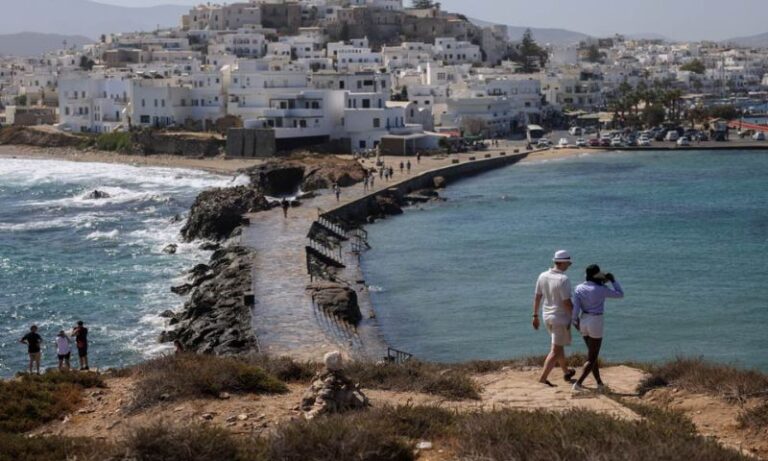Athens, Greece: Greece is grappling with a severe water crisis exacerbated by its warmest winter on record and an unprecedented early heatwave, potentially causing severe water shortages in the Mediterranean summer. Water reserves are dwindling across the country, particularly in the densely populated Attica region and vulnerable islands that rely heavily on tourism, sending authorities racing to implement emergency measures.
In Athens, home to more than a third of Greece’s population, the water level in the Mornos Reservoir, vital to the capital’s water supply, has fallen by 30 percent compared to last year. This prompted EYDAP to issue a “yellow alert” and urge residents to limit water use to sustainable levels. Public service announcements reflect this urgency, encouraging reduced consumption and mindful water habits.
The challenge is even more pronounced on Greek islands, where reliance on wells and desalination plants is further increased by the seasonal influx of tourists. Islands such as Leros have already declared a state of emergency due to malfunctioning desalination plants, highlighting infrastructure fragility exacerbated by past neglect and rapid tourist development.
Professor Nikitas Mylopoulos highlights the strain by pointing out that in some islands, summer water demand has skyrocketed to staggering levels, overwhelming local resources already strained by year-round residents. Problems on some of the affected islands, such as Sifnos and Lefkada, include overconsumption, poor infrastructure and poor water management practices.
Government responses have included state of emergency declarations and large investment pledges, such as Prime Minister Kyriakos Mitsotakis’ announcement of a major water supply project for the island of Lefkada, aimed at addressing immediate needs and making infrastructure more resilient to future water crises.
Climate change is playing a pivotal role in exacerbating Greece’s water problems, with rising temperatures and extreme weather events resulting in intensified heat waves and wildfires. Last month’s record-breaking heatwaves and sudden increase in wildfires highlight the multifaceted challenges that climate-related impacts pose to water resources and environmental stability.
Looking to the future, hydrologists such as Elisaveto Ferroni highlight the need for comprehensive water management strategies and centralized governance to ensure sustainable resource allocation across the country. Investments in alternative water sources such as Lake Juriqui reflect efforts to diversify supplies and mitigate the energy-intensive demands of pumping water in emergencies.
As Greece navigates its most severe water crisis in recent memory, balancing tourism demand, the impacts of climate change, and the need for strong infrastructure investment will be crucial to ensuring water security and resilience across the country.

